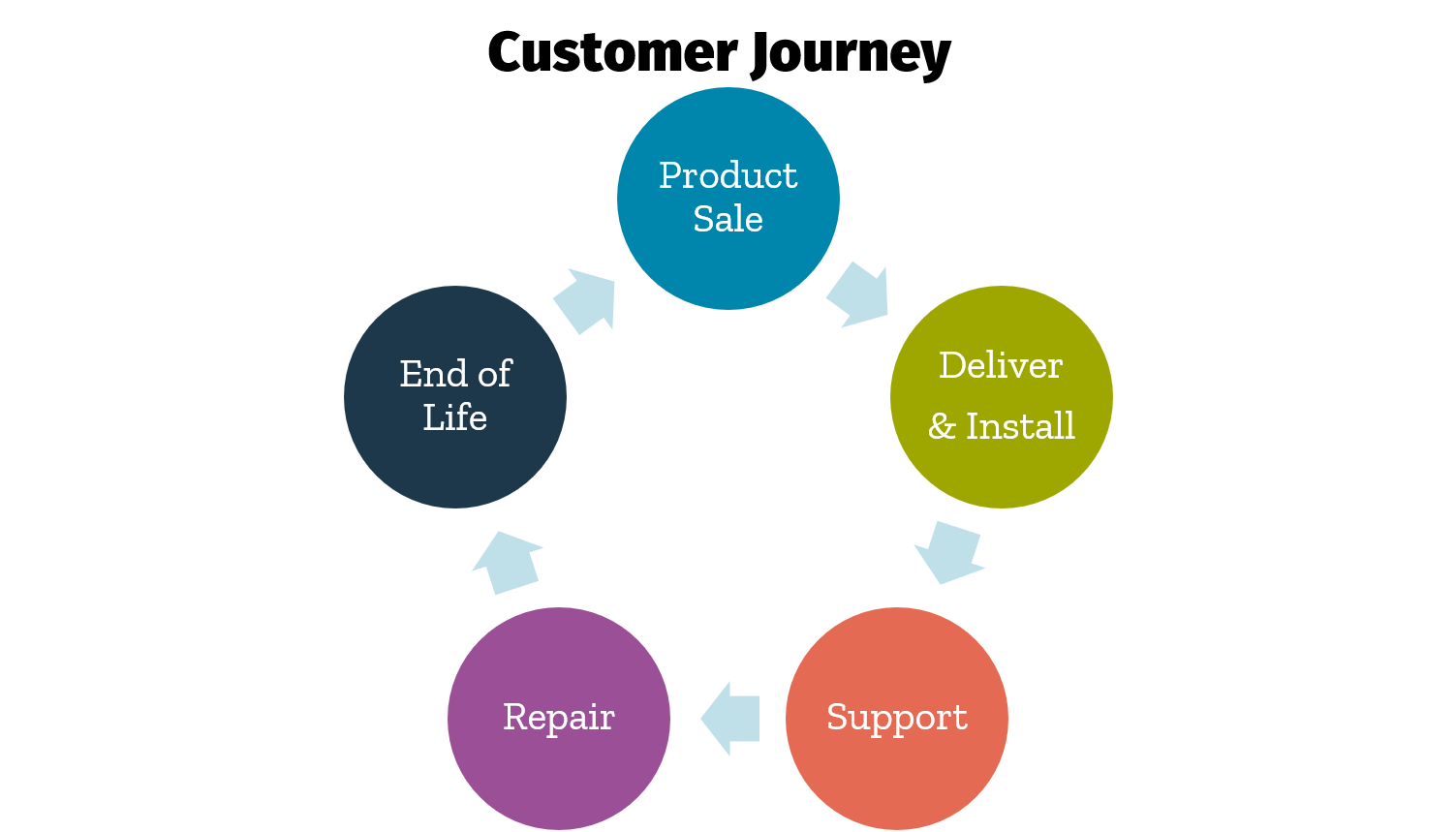Warranties can be a somewhat complex concept. Any product manufacturer or seller of products, targeted to consumers or to commercial users, not only sells the physical widgets, but often provides some level of assurance to the buyer of product performance for a period of time. This is traditionally referred to as a manufacturer's warranty. There are 2 kinds of warranties, implied and expressed, with the major difference being that expressed warranties aren't "read into" a sales contract by state law, but are explicitly offered to customers as part of the sales transaction, and include promises and statements about a product or about a commitment to fix defects and malfunctions that might be experienced by consumers.

Manufacturers are not required to provide warranties, according to the Magnuson-Moss Warranty Act, a federal law passed by the US Congress in 1975, that governs consumer product warranties. The Act requires manufacturers of consumer products to provide consumers with detailed information about warranty coverage including, 1) providing consumers with complete warranty terms and conditions, 2) providing consumers with a way to compare warranty coverage before buying, as well as 3) promote competition based on warranty coverage, and 4) strengthen incentives for companies to timely and thoroughly perform their warranty obligations and to resolve any disputes with a minimum of delay and expense to consumers.
It doesn't require a manufacturer to provide a written warranty, nor does it apply to oral warranties. It also doesn't apply warranties on services, only on goods except in cases where a warranty covers both the parts provided for a repair and the workmanship in making that repair. Lastly, it doesn't apply to warranties on commercial or resold products.
Manufacturer warranty products are intended to protect the consumer from product failure during the coverage period, and require the manufacturer to estimate accurately not only sales forecasts for the product, but how often a product might fail, such that funds, or a 'warranty reserve', can be set aside to fund future potential warrantied product failures. For manufacturers which forecast well, the reserved funds protect them from unexpected costs related to higher failure rates, and can also be a boon, when failures are lower, contributing directly to their bottom line.
Warranties can be a somewhat complex concept. Any product manufacturer or seller of products, targeted to consumers or to commercial users, not only sells the physical widgets, but often provides some level of assurance to the buyer of product performance for a period of time. This is traditionally referred to as a manufacturer's warranty. There are 2 kinds of warranties, implied and expressed, with the major difference being that expressed warranties aren't "read into" a sales contract by state law, but are explicitly offered to customers as part of the sales transaction, and include promises and statements about a product or about a commitment to fix defects and malfunctions that might be experienced by consumers.

Manufacturers are not required to provide warranties, according to the Magnuson-Moss Warranty Act, a federal law passed by the US Congress in 1975, that governs consumer product warranties. The Act requires manufacturers of consumer products to provide consumers with detailed information about warranty coverage including, 1) providing consumers with complete warranty terms and conditions, 2) providing consumers with a way to compare warranty coverage before buying, as well as 3) promote competition based on warranty coverage, and 4) strengthen incentives for companies to timely and thoroughly perform their warranty obligations and to resolve any disputes with a minimum of delay and expense to consumers.
It doesn't require a manufacturer to provide a written warranty, nor does it apply to oral warranties. It also doesn't apply warranties on services, only on goods except in cases where a warranty covers both the parts provided for a repair and the workmanship in making that repair. Lastly, it doesn't apply to warranties on commercial or resold products.
Manufacturer warranty products are intended to protect the consumer from product failure during the coverage period, and require the manufacturer to estimate accurately not only sales forecasts for the product, but how often a product might fail, such that funds, or a 'warranty reserve', can be set aside to fund future potential warrantied product failures. For manufacturers which forecast well, the reserved funds protect them from unexpected costs related to higher failure rates, and can also be a boon, when failures are lower, contributing directly to their bottom line.
As we said earlier, warranty plans like manufacturer warranties and extended warranties and service contracts both provide the promise of repair services to consumers. Wherein the manufacturer's warranty is limited to simple break fix repair services, extended warranties and service contracts are designed to improve the entire product experienced for consumers. Often service contracts provide additional features to consumers, such as no lemon guarantees, food loss protection, and power surge protection. Considering the adoption of handheld and smart technologies, extended warranties now can also offer additional services such as set up of mobile devices and networking products, and even more insurance-like features like accidental damage from handling and loss protection.

Wherein manufacturer warranties cover products from the date of sale through the stated term, extended warranties and service contracts can offer uplifted coverage that coincides with the manufacturer's warranty, as well as extended protection through many years after product purchase, with the ability to renew existing extended warranties and service contracts or even purchase new extended warranties and service contracts at some point later in the product lifetime.
Warranty services are essentially fulfillment of the promise a warranty company like a manufacturer, retailer or service provider makes when selling a product with a warranty, or an extended warranty or service contract. Warranty services include maintaining, repairing, or replacing a warrantied product.

Product service often includes a field service tech, wrench in hand ready to fix products. However, warranty service has evolved. Some products can be fixed and some can't, insomuch as it's more economical to replace a product with a new or refurbished unit. Some products are IoT enabled and can indicate to manufacturers and service providers an issue before it progresses to a complete product failure, making proactive maintenance rather than reactive service the biggest need.

Product service often includes a field service tech, wrench in hand ready to fix products. However, warranty service has evolved. Some products can be fixed and some can't, insomuch as it's more economical to replace a product with a new or refurbished unit. Some products are IoT enabled and can indicate to manufacturers and service providers an issue before it progresses to a complete product failure, making proactive maintenance rather than reactive service the biggest need.
More importantly, warranty services don't end with the failure of a product. Warranty services can extend from the manufacture of a product through the sales process to support, service and eventual end of life. Manufacturers, retailers, service providers as well as insurers and extended warranty and service contract administrators can provide omnichannel warranty services at every touch point in the consumer journey, achieving the highest levels of customer satisfaction, which in turn impacts brand loyalty and long term revenue.
What is an OEM?
OEM is an acronym for an original equipment manufacturer and is another term used for manufacturers.
What is an OEM or manufacturer's warranty?
OEM warranties are promises made by the manufacturer related to product performance.
What is an extended warranty or service contract?
Extended warranties and service contracts provide extended break fix repair service for products sold by OEMs, retailers, and service providers. They often provide additional coverages not offered by the OEM
Are service contracts insurance?
In some states and in Canada, service contracts can be considered insurance for a variety of reasons.
What does underwriting mean related to OEM warranties and service contracts?
OEMs must set aside a reserve or fund to cover the costs of anticipated or estimated warranty repair costs. An insurance company can step in and enable the OEM to offload this expense through insurance policies, impacting the balance sheet.
What is an ODM?
ODMs are manufacturers whom build components, parts or entire products for other entities, which in some cases are branded by an OEM or retailer. Warranties and extended warranties and service contracts are valuable for ODMs because they enable ODMs to provide additional value to their customer and downstream consumers through enhanced service options.
What is service fulfillment?
Service Fulfillment is the act of provide warranty services, including repair, maintenance, delivery and installation of products.
OnPoint Warranty Solutions, LLC
Global Headquarters
1400 Main St, Suite 132, Clarksville IN 47129
Administration Center
9900 Corporate Campus Dr, #2050, Louisville KY 40223